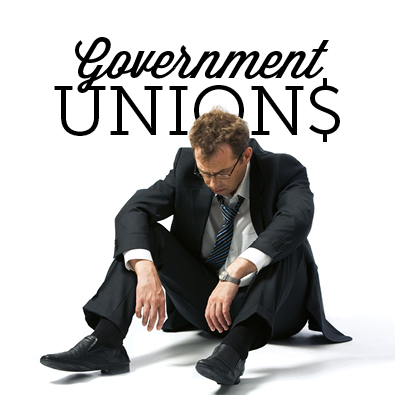Media

Are All Paycheck Deductions Created Equal?
Opponents of “paycheck protection” are desperate to preserve their exclusive legal and political privilege, which is evident by their use of specious arguments designed to confuse and distract.
For example, government unions argue that paycheck deductions for union fees, dues and political action committee (PAC) campaign contributions are no different than deductions for health insurance premiums and charitable contributions.
But this is comparing apples to oranges. Unlike voluntary deductions, union dues and PAC contributions are inherently political, partisan and, in the case of union fees, involuntary.
Let’s start with the deduction of PAC campaign contributions. PAC money deducted from workers’ paychecks is blatantly political and used for partisan purposes. Under the current system, taxpayer resources are used to collect PAC money, bundle it, and then remit it to union bank accounts. Of course, union bosses then dole that money out directly to candidates for public office who commit to helping maintain the government union power cycle.
In contrast, health insurance premiums and charitable contributions are not inherently political. Indeed, it is illegal for insurance companies and charitable organizations to use these monies to make any contributions to candidates for public office.
As for the deduction of union dues, union apologists contend dues “cannot be used for politics.” Therefore, they are no different than other deductions. But there are two problems with this claim.
First, it is a gigantic union lie that union dues can’t be used for politics. Union dues, collected by the taxpayers, are spent on lobbying, candidate endorsements, get-out-the-vote efforts, candidate and issue advocacy, contributions to “independent” third-party political and partisan organizations, as well as fundraising for campaign contributions to union political action committees (PACs).
Further, taxpayer-collected dues and PAC collections open the door to public corruption during the collective bargaining process. Government union leaders can bargain for taxpayer-funded collection of their political money from the same politicians to whom they contribute money and support with political mailers funded by dues.
It makes sense to take taxpayer collection of political money completely off the negotiating table to avoid any possibility of a quid pro quo. Indeed, this is why an increasing number of local government officials are joining the call to end the collection of union fees, dues and campaign contributions at taxpayers’ expense.
Finally, because most public employees are forced to pay, at a minimum, union fees to keep their jobs, union bosses have little incentive to serve their needs. This disconnect between union bosses and members (see the NEA’s own admission of this) is only further exacerbated when union monies are automatically withheld from employees’ paychecks.
If government union leaders were required to collect their own fees, dues and campaign contributions directly from their members, workers would be able to hold union bosses more accountable for their political decisions. In contrast, union members can hold insurance companies and charities accountable because arrangements with those entities is strictly voluntary.
If union workers are not happy with their health insurance company or a charity, they’re free to take their money elsewhere. Workers don’t have that option when it comes to unions’ political spending.